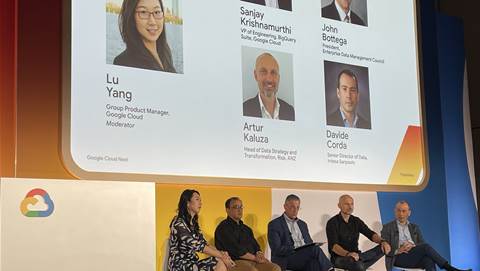Close to three quarters of CEOs believe 2023 will be the year of economic decline according to a new PWC survey.

This is a bleaker outlook than previous reports where CEOs in the previous two years thought economic growth would improve.
In the annual PWC CEO survey, CEOs are worried about their organisations’ economic feasibility. Close to 40 percent of CEOs thinks their organisation will not economically viable in a decade if they continue on the same path.
This pattern is consistent across a range of sectors, including telecommunications (46 percent), manufacturing (43 percent), healthcare (42 percent) and technology (41 percent).
CEO confidence in their own company’s growth prospects also declined dramatically since last year (-26 percent), the biggest drop since the 2008-2009 financial crisis when a 58 percent decline was recorded.
Importance of trust
In the survey, CEOs noted the need to collaborate with a wide range of stakeholders to build trust and deliver sustained outcomes if they are to generate long-term societal value.
The survey found that when organisations partner with non-business entities, it is to address sustainable development (54 percent), diversity, equity, and inclusion (49 percent), and education (49 percent).
If organisations are to remain viable in the near and long-term, they must also invest in their people and technological transformation agendas to empower their workforces, the report noted.
Technologically, 76 percent of organisations say they are investing in automating processes and systems, implementing systems to upskill workforces in priority areas (72 percent), deploying technology such as the cloud, AI and other advanced technology (69 percent).
Top concerns
Last year, CEOs were concerned about cyber and health. In 2023, CEOs are majorly concerned about the impact of an economic downturn.
CEOs noted inflation and macroeconomic volatility lead the risks weighing on CEOs in the short-term – the next 12 months – and over the next five years.
Close behind, 25 percent of CEOs also feel financially exposed to geopolitical conflict risks, whereas cyber risks and climate change have fallen in relative terms.
Bob Moritz, global chairman, PWC, said a volatile economy, decades-high inflation, and geopolitical conflict have contributed to a level of CEO pessimism not seen in over a decade.
He said, “CEOs globally are consequently re-evaluating their operating models and cutting costs, yet despite these pressures, they are continuing to put their people front and centre as they look to retain talent in the wake of the ‘Great Resignation’.
“The world continues to change at a relentless pace, and the risks facing organisations, people – and the planet – will only continue to rise. If organisations are not only to thrive – but survive the next few years – they must carefully balance the dual imperative of mitigating short-term risks and operational demands with long-term outcomes - as businesses that don’t transform, won’t be viable.”
Climate risks
While climate risk did not feature as prominently as a short-term risk over the next 12 months relative to other global risks, CEOs still see climate risk impacting their cost profiles (50 percent), supply chains (42 percent) and physical assets (24 percent) from a moderate to very large extent.
Despite an increasing number of countries now having some form of carbon pricing, a majority of respondents (54 percent) still do not plan to apply an internal price on carbon in decision-making, and over a third (36 percent) don’t plan to implement initiatives to protect their company’s physical assets and/or workforce from the impact of climate risk.
Moritz explained that the risks facing organisations and society today cannot be addressed alone and in isolation.
“CEOs must therefore continue to collaborate with a wide range of public and private sector stakeholders to effectively mitigate those risks, build trust and generate long term value - for their businesses, society and the planet,” he ended.


_(20).jpg&h=140&w=231&c=1&s=0)
.png&h=140&w=231&c=1&s=0)






_(26).jpg&w=100&c=1&s=0)
 iTnews Executive Retreat - Security Leaders Edition
iTnews Executive Retreat - Security Leaders Edition












_(1).jpg&h=140&w=231&c=1&s=0)



